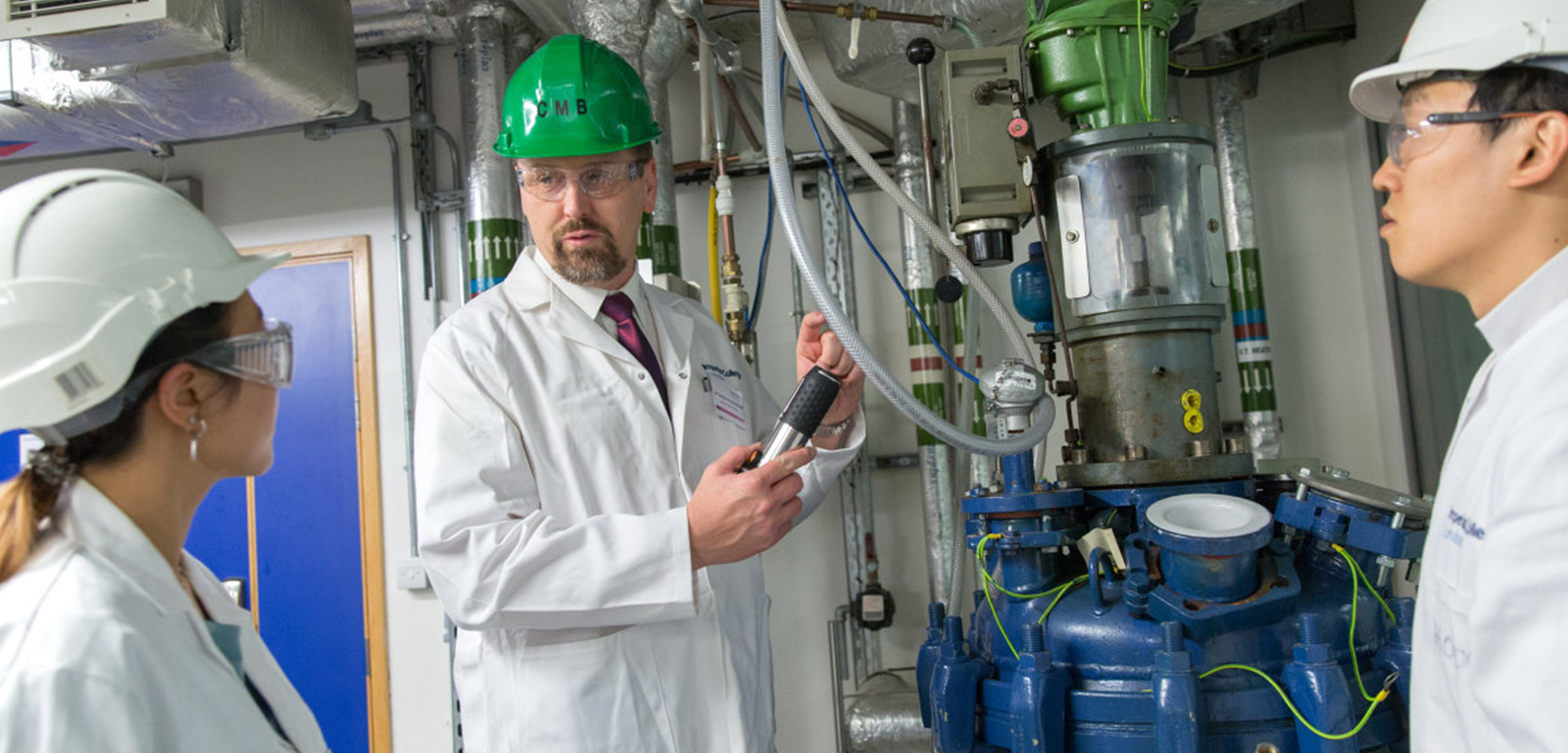

Chemical engineers bring about innovation and improvements in process industries, such as those concerned with the manufacture of chemicals, food, fuel and pharmaceuticals.
The Department of Chemical Engineering was founded in 1912 and undergraduate degrees were first formally taught from 1937.
On this professionally accredited course, you will learn to apply scientific, engineering and business principles to a variety of complex practical issues.
Study programme
All Chemical Engineering students study the same core programme for the first two years, covering fundamental science and mathematics and how these apply to practical engineering problems.
Throughout your programme of study, you will develop a strong foundation in the fundamental principles of science, mathematics and engineering and use this to build sound practical expertise and engineering judgement.
You will study core chemical engineering subjects and will be able to demonstrate your competency in these subjects through the use of the ‘mastery’ concept. There is a particular emphasis on mathematics throughout the programme, and we are working on processes to enhance student engagement and response in this topic through the use of gaming apps.
As the course progresses, you will have the freedom to tailor your study programme to your interests through a range of specialist modules such as nuclear chemical engineering and biochemical engineering.
Your study reaches Master’s level in the fourth year, with advanced modules and a substantial research project. Studying to this level means that graduates require fewer years of work experience to become a Chartered Engineer.
Environmental effects of chemical operations are highlighted throughout the course, with an emphasis on successful control and mitigation.
There are also major optional modules in which environmental technology themes can be taken further. Attention to safety engineering is closely integrated with many of the modules and in most projects a safety audit is required.
More information:click here
Year 1
Chemical Engineering Practice 1
Chemistry 1
Mastery 1
Mathematics Fundamentals
Physical Chemistry
Process Analysis
Separation Processes 1
Thermodynamics 1
Transfer Processes 1
Year 2
Chemistry 2
Engineering Mathematics
Mastery 2
Process Dynamics and Control
Reaction Engineering 1
Separation Processes 2
Thermodynamics 2
Transfer Processes 2
Year 3
Chemical Engineering Practice 3
Environmental Engineering
I-Explore Module
Mastery 3
Particle Engineering
Process Design
Process Optimisation
Reaction Engineering 2
Safety and Loss Prevention
Optional modules
You choose one module from below.
Advanced Fluid Mechanics
Biochemical Engineering
Clean Fossil Fuels
Membrane Science and Membrane Separation Processes
Nuclear Chemical Engineering
Process Heat Transfer
Year 4
Chemical Engineering Practice IV
Optional modules
You choose six of the optional modules below, without choosing modules you have already studied in Year 3.
Advanced Bioprocess Engineering
Advanced Process Operations
Advanced Process Optimisation
Colloids and Interface Science
Dynamic Behaviour of Process Systems
Dynamical Systems in Chemical Engineering
Modelling of Biological Systems
Molecular Modelling of Fluids
Pharmaceutical Process Development
Product Characterisation
Transport Processes in Biological Systems

Our graduates enjoy a wide choice of careers in the process, energy and healthcare industries and in companies involved in the design and construction of chemical plants. Many graduates have also entered research organisations, public utilities, consultancy and the information technology industry, with many opportunities for employment overseas.
Recent graduates of the Department have become:

Insurance-Single:£300/year